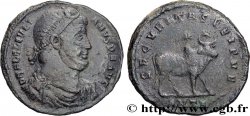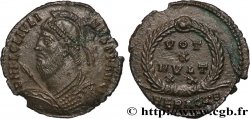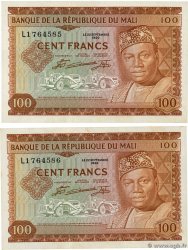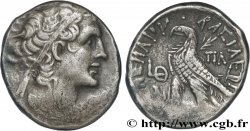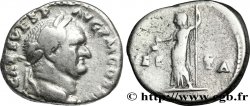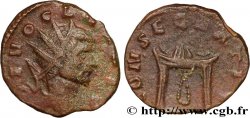Live auction - brm_929696 - JULIAN II THE PHILOSOPHER Nummus
You must signin and be an approved bidder to bid, LOGIN TO BID. Accounts are subject to approval and the approval process takes place within 48 hours. Do not wait until the day a sale closes to register. Clicking on "BID" constitutes acceptance of the terms of use of cgb.fr private live auctions.
Bids must be placed in whole Euro amounts only. The sale will start closing at the time stated on the item description; any bids received at the site after the closing time will not be executed. Transmission times may vary and bids could be rejected if you wait until the last second. For further information check the Live auction FAQ
All winning bids are subject to a 18% buyer’s fee.
All winning bids are subject to a 18% buyer’s fee.
| Estimate : | 600 € |
| Price : | 330 € |
| Maximum bid : | 330 € |
| End of the sale : | 09 July 2024 15:27:02 |
| bidders : | 2 bidders |
Type : Nummus
Date: c. 361-363
Mint name / Town : Roma
Metal : copper
Diameter : 12,5 mm
Orientation dies : 6 h.
Weight : 1,60 g.
Rarity : R3
Officine: 3e
Coments on the condition:
Monnaie sur un flan court, centré. Joli buste ainsi qu’un revers agréable. Fine usure régulière. Patine marron
Obverse
Obverse legend : DEO SARAPIDI.
Obverse description : Buste barbu de Julien II sous les traits de Sérapis coiffée d’un modius et drapé à droite.
Obverse translation : “Deo Sancto Sarapadi”, (Au dieu saint Sérapis).
Reverse
Reverse legend : VOTA PVBLICA.
Reverse description : Anubis, tourné à gauche, tenant un sistre et un caducée.
Reverse translation : “Vota Publica”.
Commentary
Ce type est l’un des plus rares de ce monnayage, abondant et iconographiquement riche mais de la plus grande rareté dans les collections. Ce monnayage remplissait-il un rôle religieux, un rôle politique, un rôle de propagande ? Près de soixante-dix ans après la publication du travail d’A. Alföldi, ce monnayage reste toujours une énigme.








 Report a mistake
Report a mistake Print the page
Print the page Share my selection
Share my selection Ask a question
Ask a question Consign / sell
Consign / sell
 Full data
Full data